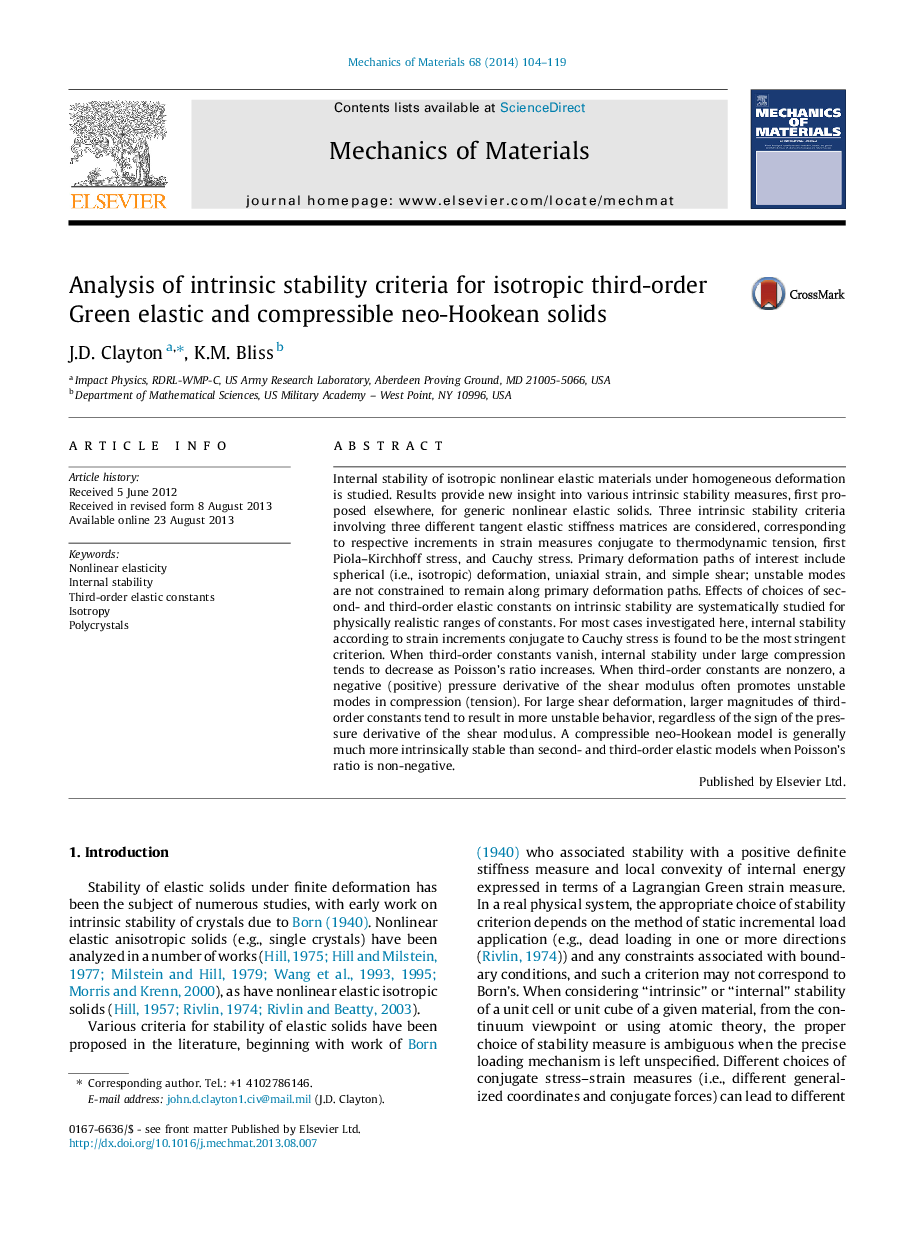| کد مقاله | کد نشریه | سال انتشار | مقاله انگلیسی | نسخه تمام متن |
|---|---|---|---|---|
| 802812 | 1467473 | 2014 | 16 صفحه PDF | دانلود رایگان |
• Generic nonlinear elastic solids are analyzed for intrinsic instability under simple deformation paths.
• Stability with respect to variations conjugate to Cauchy stress is usually the most stringent criterion.
• Negative pressure derivative of shear modulus promotes instability in compression.
• Under simple shear, large magnitudes of third-order constants promote instability.
• Compressible neo-Hookean model is usually more intrinsically stable than third-order elastic model.
Internal stability of isotropic nonlinear elastic materials under homogeneous deformation is studied. Results provide new insight into various intrinsic stability measures, first proposed elsewhere, for generic nonlinear elastic solids. Three intrinsic stability criteria involving three different tangent elastic stiffness matrices are considered, corresponding to respective increments in strain measures conjugate to thermodynamic tension, first Piola–Kirchhoff stress, and Cauchy stress. Primary deformation paths of interest include spherical (i.e., isotropic) deformation, uniaxial strain, and simple shear; unstable modes are not constrained to remain along primary deformation paths. Effects of choices of second- and third-order elastic constants on intrinsic stability are systematically studied for physically realistic ranges of constants. For most cases investigated here, internal stability according to strain increments conjugate to Cauchy stress is found to be the most stringent criterion. When third-order constants vanish, internal stability under large compression tends to decrease as Poisson’s ratio increases. When third-order constants are nonzero, a negative (positive) pressure derivative of the shear modulus often promotes unstable modes in compression (tension). For large shear deformation, larger magnitudes of third-order constants tend to result in more unstable behavior, regardless of the sign of the pressure derivative of the shear modulus. A compressible neo-Hookean model is generally much more intrinsically stable than second- and third-order elastic models when Poisson’s ratio is non-negative.
Journal: Mechanics of Materials - Volume 68, January 2014, Pages 104–119
